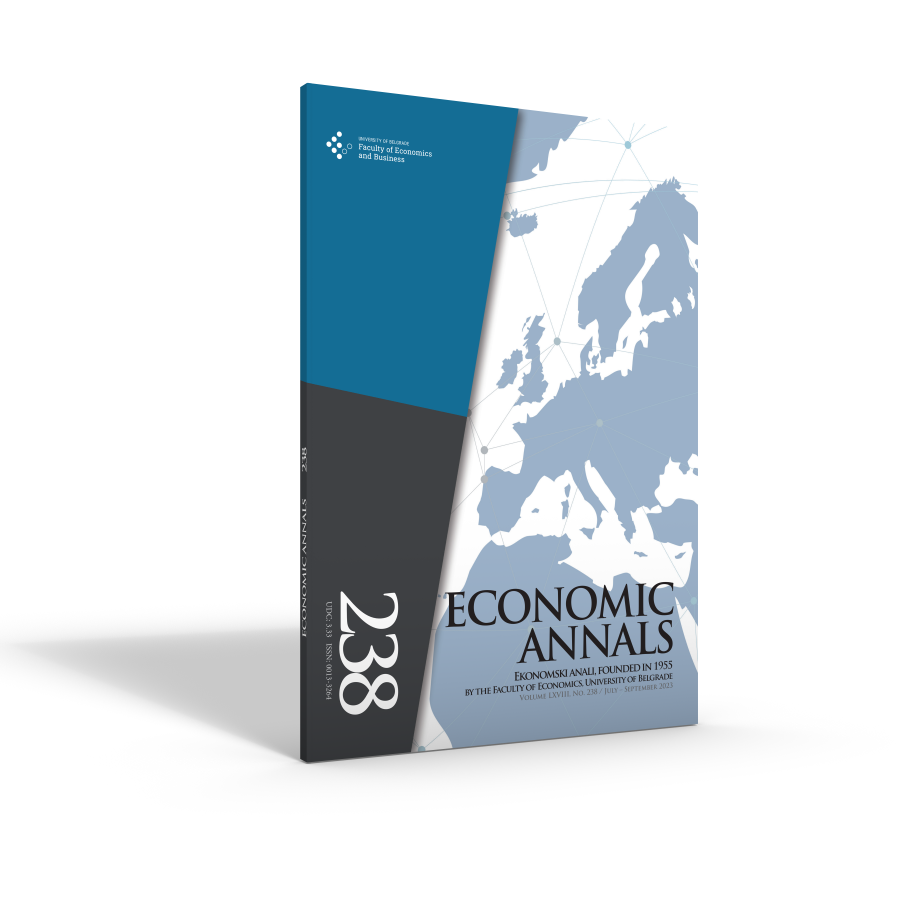RICARDIAN EQUIVALENCE OR TWIN DEFICITS HYPOTHESIS? EVIDENCE FROM SERBIA
##plugins.themes.bootstrap3.article.main##
##plugins.themes.bootstrap3.article.sidebar##
Jelena Rašković
Abstract
This study investigates empirically whether higher budget deficits worsen the current account balance in Serbia, which is in line with the twin deficit hypothesis.This prediction is very different from Ricardian equivalence theory, which implies that a decrease in public savings is always anticipated via increased private savings. Hence, budget deficits have no impact on the current account balance. Based on quarterly data for the period between 2005 and 2020 and using a multivariate vector autoregression (VAR) model and a short-run structural VAR model, this paper confirms the twin deficit hypothesis in Serbia. More precisely, a 1 percentage point increase in the budget deficit (as a percentage of GDP) generates a 0.31 percentage point increase in the current account deficit (as a percentage of GDP). Moreover, the result is also confirmed using alternative estimation techniques (GMM and OLS method). According to these results, macroeconomic policymakers in Serbia should resort to policies that encourage fiscal consolidation to rectify or at least mitigate deterioration of the current account balance.
##plugins.themes.bootstrap3.article.details##
Keywords
twin deficits hypothesis, Ricardian equivalence, budget balance, current account balance, short-run structural VAR.
JEL Classification
F32, F41, H62, C32
Issue
Section
Articles
How to Cite
Rašković, J. (2023). RICARDIAN EQUIVALENCE OR TWIN DEFICITS HYPOTHESIS? EVIDENCE FROM SERBIA. Economic Annals, 68(238), 87-113. https://doi.org/10.2298/EKA2338087R
How to Cite
Rašković, J. (2023). RICARDIAN EQUIVALENCE OR TWIN DEFICITS HYPOTHESIS? EVIDENCE FROM SERBIA. Economic Annals, 68(238), 87-113. https://doi.org/10.2298/EKA2338087R

